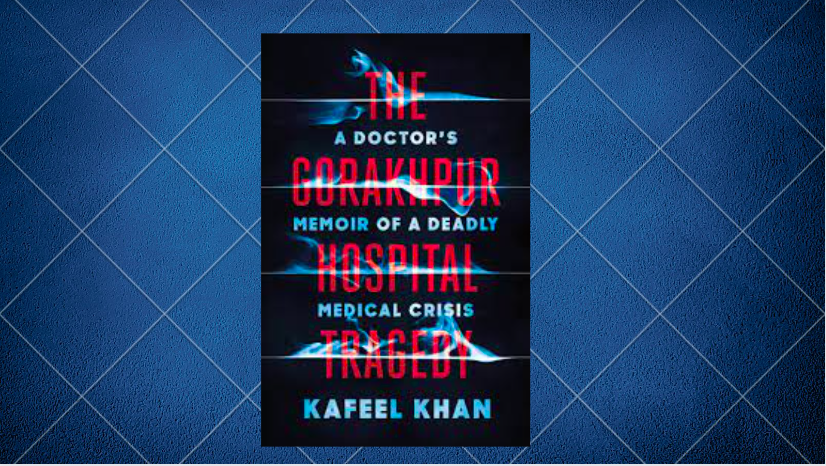The Gorakhpur Hospital Tragedy: A Doctor’s Memoir of a Deadly Medical Crisis
by Dr. Kafeel Khan
Publisher: Pan Macmillan (2021)
I loved the book!
‘Darna ata nahi,
Chahe jitna bhi dara lein,
Uthenge har bar ek nayee takat se,
Chahe jitna jhuka lein.’
(I don’t know how to feel scared,
However much they may try to scare me,
I will rise every time with a new strength,
However much they try to make me bend and kneel.)
This poem sums up the spirit of the author.
I’ve been reading only fiction lately. But Oh My God! This book was as thrilling and gripping as fiction, even though it’s a memoir. I finished it in two days.
Before we start let me tell you, I probably would have never known about this incident if not for this book. I stopped watching the news long ago. Thank you for the book, Dr Kafeel Khan and Pan Macmillan.
Tears rolled down my cheeks many times during the initial chapters. I cried and cried looking at this one junior doctor leaving his home at midnight for a hospital emergency and working round-the-clock without any of his seniors showing up at the critical hour. It’s only in the later chapters I realized the reason behind his seniors’ absence. Nor was the emergency his fault. He has described the incident so well and put in extra details where needed.
Kafeel’s love for kids and his determination to save all the children of the hospital is truly inspiring. Kids died in the hospital like tumbling dominoes on that fateful night. One after the other, every half hour or so another child died. All of the staff including Kafeel were in tears, shocked to see the man-made disaster. But he kept his cool and kept the staff under control too. He consoled the parents who’d lost their children. But he moved on just as quickly and cared for the other surviving children. This goes on for fifty-four hours with Dr Kafeel continuously running around the patients, prescribing the right medicines, consoling the grieving parents, running to different hospitals and begging for oxygen cylinders. He arranges about 500 cylinders in that time with the help of a few good people.
The parents also verbally abused him and pushed him around. But still he kept his calm. And remember he’s just a junior doctor in the paediatrics department. But a junior who cared, while many people up the ladder didn’t.
The book spots the right problems in our crippled healthcare system with corrupt politicians, government officials, redundant third-party contracts and a long, complex system to get payments from the government.
The book also has photographs showing the various documents and proof of Kafeel’s efforts to save the children. I’m glad there were pictures, because this isn’t fiction and I really wanted to see what this man looked like and see his family who supported him through thick and thin. It was a pleasure to read this book. I never knew a story about government hospitals could be so exciting to read.
But I was stunned later when I realised the hero, Kafeel Khan who saved so many lives during the tragedy and should have probably received an honorary award or two was sent to Gorakhpur jail. He’s made the scapegoat with false, baseless accusations by the Uttar Pradesh government.
The book also highlights how the judicial system is slow and flawed. Where an innocent man is sent to jail on baseless charges and then he’s supposed to fight to get bail. ‘Bail is the rule and jail is the exception’ just remains in words and on paper, but in no effect. It also shows what prison life looks like: over-populated barracks, corruption at every level in the prison, especially with the jail officers. The kind of food you eat, the space you get and where you sleep are based on the depths of your pockets.
The government machinery is so powerful that it turns a hero into a villain in a second. I’m kind of already worried if the government will threaten me for writing this positive review and appraising the book.
The book raises a lot of questions: Why did the government authorities not clear the sixty-eight lakhs of pending dues to Pushpa Sales even after fourteen reminder letters? Why was Kafeel Khan jailed? Why isn’t he reinstated to his post in the college?
Because of the fast-pace at the start of the book, it feels quite slow as you reach towards the end. Probably because his life has turned upside down. The book has a one-page introduction as the first page of the book and contains a clear timeline of events in the doctor’s life.
It was as thrilling and emotional as a fiction book. I’m glad you wrote this book, Dr Kafeel Khan. I wish this book and your story reaches many more people.
It’s a must read for all those who love memoirs and true-accounts. And those who think doctors work only for money.

